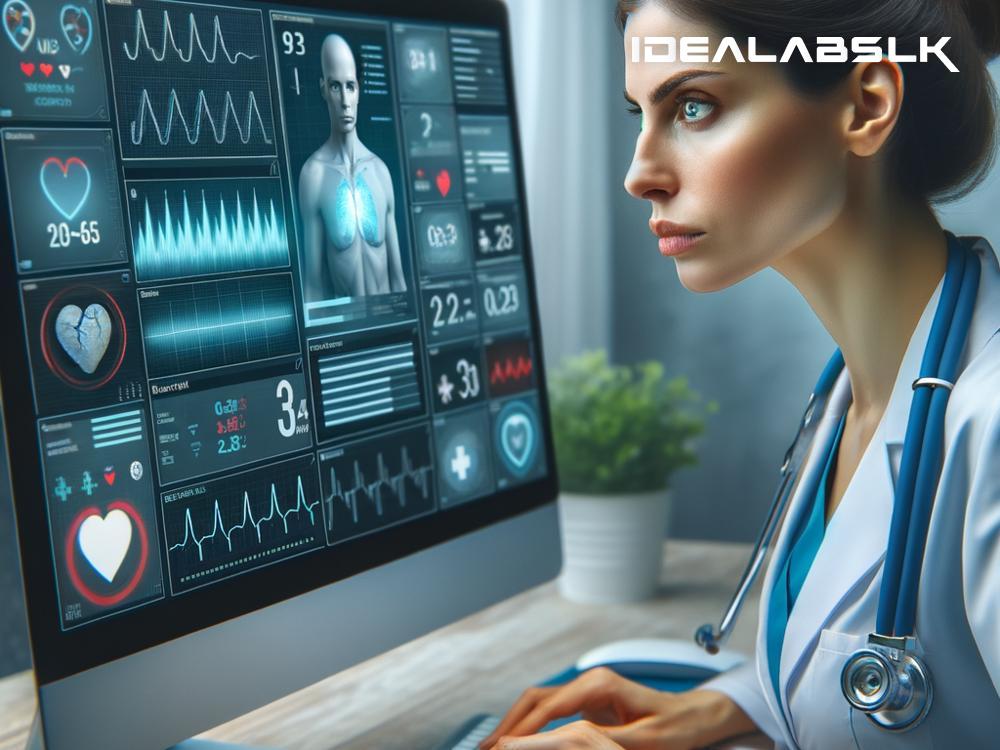Title: How AI is Transforming Remote Patient Monitoring: Keeping an Eye on Health from Afar
As technology evolves, healthcare is becoming more accessible and efficient, especially with the advancements in Artificial Intelligence (AI). One of the most impactful developments has been in remote patient monitoring (RPM), a healthcare delivery method that uses the latest gadgets to track patient health data from a distance. This innovation is particularly beneficial for managing chronic conditions, reducing hospital readmissions, and providing care to those living in rural or underserved areas. Let’s dive into how AI is revolutionizing the way we monitor health from afar, making life easier for both patients and healthcare providers.
What is Remote Patient Monitoring?
Before we get into the role of AI, let's understand what remote patient monitoring actually entails. RPM involves the collection of a wide range of health data from the individual in one location (often their home), which is then electronically transmitted to healthcare providers in a different location for assessment and recommendations. These health data can include vital signs, oxygen levels, blood pressure, heart rate, and blood sugar levels, among others.
The AI Revolution in RPM
Enhanced Data Analysis
The true power of AI lies in its ability to analyze vast amounts of data quickly and accurately. In the context of RPM, AI algorithms can sift through the health data transmitted by patients, identifying patterns and anomalies that may indicate a change in the patient's condition. This means health issues can be detected early, often before the patient is even aware, allowing for prompt intervention and potentially preventing hospitalizations.
Predictive Healthcare
AI in RPM can do more than just monitor; it can predict. By learning from historical health data, AI can forecast potential future health events, offering a predictive glimpse into the patient's health trajectory. This aspect of AI can be particularly useful in managing chronic diseases, where understanding the potential future course can lead to more personalized and effective care plans.
Personalized Healthcare Plans
Every individual's health journey is unique, and AI is making it possible to tailor healthcare to fit each person's specific needs. Based on the analysis of data from RPM devices, AI can help healthcare providers create highly personalized healthcare plans. These plans can be adjusted in real-time based on new data, ensuring the patient always receives the most appropriate care.
Improved Communication and Engagement
AI-enabled RPM devices make it easier for patients to stay in touch with their healthcare providers and vice versa. Through AI-driven apps and platforms, patients can receive timely advice, reminders for medication, and lifestyle tips directly related to their health conditions. This not only improves communication but also empowers patients to take an active role in managing their health.
The Benefits of AI in RPM
- Early Detection and Prevention: By identifying early signs of deterioration, AI can help in taking preventative measures before a condition worsens.
- Cost Reduction: RPM can significantly reduce healthcare costs by minimizing hospital readmissions and allowing for care to be administered at home.
- Increased Accessibility: Patients living in remote areas can receive quality healthcare without the need to travel, making healthcare more inclusive and accessible.
- Improved Quality of Life: With continuous monitoring and tailored healthcare plans, patients can enjoy a better quality of life with less disruption from hospital visits and long-term health issues.
The Future of Healthcare
The integration of AI in remote patient monitoring is just the beginning. As technology continues to advance, we can expect to see even more innovative applications of AI in healthcare. From virtual health assistants to advanced diagnostics and treatment plans, the possibilities are endless.
However, as we move forward, it's crucial to address the challenges that come with such technological advancements, including data security, privacy concerns, and the digital divide that may prevent some populations from accessing these technologies. By overcoming these hurdles, we can ensure that the benefits of AI-driven remote patient monitoring are accessible to all, paving the way for a future where distance no longer defines the quality of healthcare one receives.
In conclusion, AI is not just transforming remote patient monitoring; it's revolutionizing the entire healthcare landscape. By leveraging the power of AI, healthcare providers can offer more personalized, efficient, and proactive care, ultimately leading to healthier populations worldwide. In this era of digital health, monitoring health from a distance is not just a possibility; it's the new reality.

